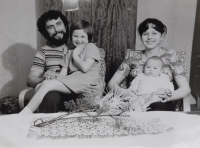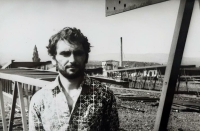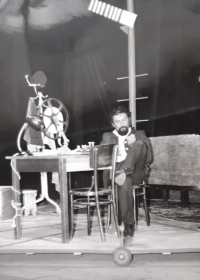I boycotted the war

Download image
Ladislav Valeš was born on May 7, 1950 in the village of Nová Chřibská. From 1965 he studied at a secondary military school in Slovakia. After two years, thanks to a medical opinion, he left the school. At the school in Varnsdorf, he trained as an electrical fitter of distribution equipment. He experienced the invasion of Warsaw Pact troops in Nová Chřibská. He wrote anti-occupation signs with his classmates. After completing his apprenticeship, he started working as an electrician at a distribution facility in Děčín. Later, he worked as a master of vocational training at the Varnsdorf school. He often objected to patronizing students from influential families. Since 1983, he has been engaged in amateur theater. He first played in the group Scéna Libochovice and later directed performances. After playing Watched Trains three times, including passages he was not allowed, he had to quit the ensemble. In 1986, he became one of the founders of the Rádobydivadlo Klapý theater group. He collaborated with ensembles in Louny, Lovosice, Česká Lípa and Dobronín. During the Velvet Revolution, he co-founded the Libochovice Civic Forum (OF). In 2022 he lived in Libochovice.







